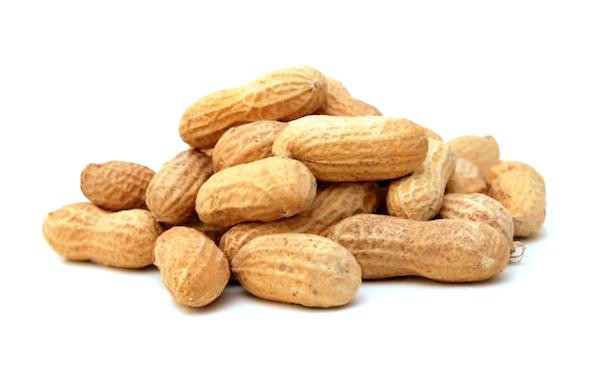Peanuts Infants Allergies: Can Study Prove Cure For Peanut Allergens In Children?

Feeding peanuts to infants might help allergies in children later in life. Evidence is accumulating that food allergies might be prevented altogether by feeding the allergenic food to babies in their first year of life, FOX News.
That finding would challenge the recommendation of the World Health Organization that infants be fed exclusively breast milk for the first six months of life. “At least as far as peanut is concerned, I would recommend parting from that,” Dr. Gideon Lack, professor of pediatric allergy at King’s College London, said in an interview.
Dr. Lack was the senior author of a study last year that found feeding peanuts to young children starting when they are 4 to 11 months old sharply reduced the risk of their developing peanut allergies. That upended the conventional wisdom that it is best to avoid introducing peanuts until children are older.
On Friday, the National Institute of Allergy and Infectious Diseases, which helped pay for the study of feeding peanuts to infants who might help allergies, issued proposed new guidelines recommending that children at risk of peanut allergies be fed peanuts starting at 4 to 6 months of age, though they should be tested first to make sure they do not already have an allergy.
But that initial study also left several unanswered questions. Some of those questions were answered by two additional studies that were set to be published online in The New England Journal of Medicine and were presented here at the annual meeting of the American Academy of Allergy, Asthma & Immunology on Friday.
One question was whether children who consume peanuts from an early age will still remain free of allergies if they stop consuming them. The researchers followed the children from the original study for another year, from the time they turned 5 until they turned 6. For that year, they were not supposed to eat peanuts at all. The results found no big increase in allergies. “It tells you the protective effect is stable,” Dr. Lack said.
Another question was whether the early feeding technique could be applied to other types of foods and to children at normal risk of allergies.
The researchers conducted a second study at King’s College London involving 1,300 infants who were 3 months old and being fed only breast milk. Half were randomly assigned to continue on only breast milk until 6 months of age, which is the recommended practice in Britain by the United Kingdom Department of Health.The other half were to be regularly fed small amounts of peanut butter and five other allergenic foods: eggs, yogurt, sesame, white fish and wheat. The children were assessed for allergies when they turned 3.
Over all, 5.6 percent of the infants who were fed the allergenic foods early on developed an allergy to at least one of the six foods, a modest improvement from the 7.1 percent in the breast-milk-only group. However, the difference was not statistically significant, meaning it could have occurred by chance.
One problem was that fewer than half of the parents in the early-introduction group actually fed their children the required six foods on a regular basis. But when researchers looked only at those children whose parents adhered to the feeding regimen, there was a statistically significant reduction in allergies. Only 2.4 percent of those children developed a food allergy, compared with 7.3 percent of those whose parents faithfully stuck to only breast milk for six months. There were also significant reductions in peanut and egg allergies alone.
One conclusion could be that feeding allergenic foods to infants early really does work to prevent allergies, providing that parents consistently follow the feeding regimen.
But researchers cautioned that there could be another explanation. One reason parents stopped feeding the foods is that they thought their children were having a possible allergic reaction to them. In that case, looking only at the children who were actually fed the food would overstate the effectiveness of the technique.
Dr. Lack said he did not think that was an explanation because the children in the early-introduction group whose parents did not adhere to the feeding protocol did not have an unusually high rate of allergies at age 3.
Dr. James R. Baker Jr., chief executive of Food Allergy Research & Education, a patient advocacy group, said that even if the benefits of early introduction were not totally clear for all the foods, there appeared to be little harm from that practice.
“I think for a very long time here we’ve vilified these foods,” he said at a news conference here. “There’s no reason not to do this. There’s no harm that comes from early introduction.”
In a commentary in The New England Journal of Medicine, Dr. Gary W.K. Wong, a pediatrician at Chinese University of Hong Kong, cautioned against unproven conclusions. He said the fact that so many parents did not stick to the regimen suggested that it was too demanding to be practical and that less-burdensome ways must be found to introduce allergenic foods early.
While feeding peanuts to infants might help allergies in children later in life, the evidence continues to build. “In the meantime,” he said, “evidence is building that early consumption rather than delayed introduction of foods is likely to be more beneficial as a strategy for the primary prevention of food allergy.”
 By:
By: 